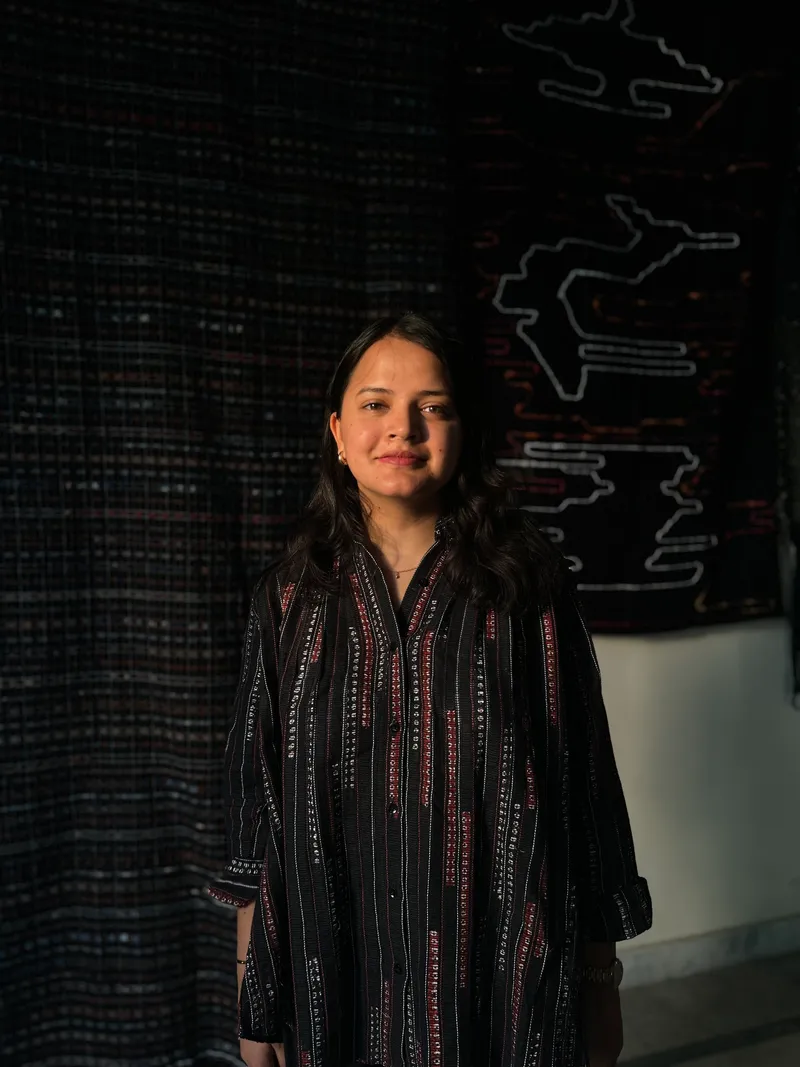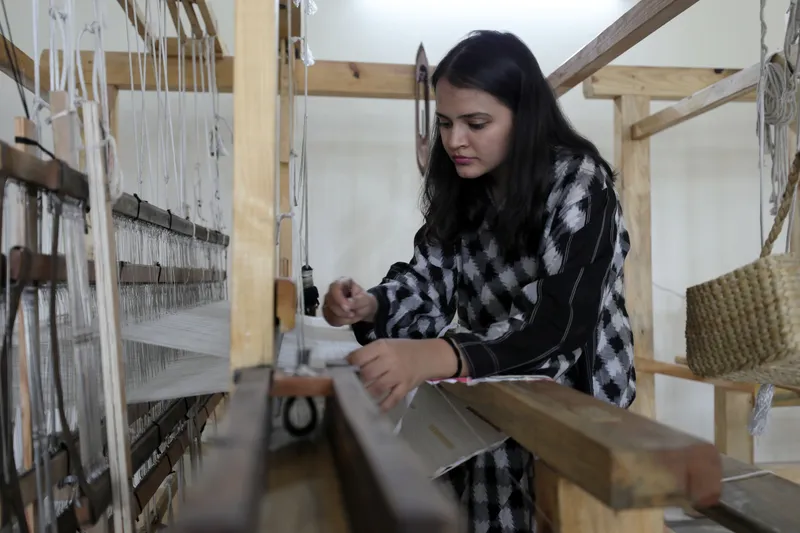This entrepreneur upcycles textile scraps to create appealing new fabrics and garments
Sustainability has always been a way of life for Ashita Singhal. This eventually became the cornerstone of her entrepreneurial venture Paiwand, a Delhi-based studio dedicated to sustainable fashion.
Like most middle-class households, Ashita Singhal’s household too reused containers. Singhal also wore pre-used clothes handed down to her. Sustainability had always been a way of life for her even as a child.
These childhood experiences eventually shaped Singhal’s outlook in life, and sustainability became a core part of her value system.
Years later, while studying fashion design, she became aware of the large amounts of waste produced by the fashion industry. Then an internship with a fashion brand opened her up to the possibility of upcycling textile waste into something meaningful.
Soon enough, Singhal’s desire to repurpose the waste generated by the fashion industry became the cornerstone of Paiwand—a textile studio started by her in 2018.
The Delhi-based studio, which is dedicated to sustainable fashion, collects textile scraps from craft clusters, designers, brands, and organisations, and upcycles them into new fabrics using traditional handloom weaving and embroidery techniques.
These upcycled eco-friendly textiles are provided to B2B clients for making garments, upholstery, and interior decor elements such as wall and ceiling panels.
The studio also sells a ready-to-wear collection of upcycled garments for men and women, including scarves, tops, dresses, shirts, jackets, trousers, sarees, and capes.
The journey

Ashita Singhal
Singhal, who grew up in Delhi, graduated with a business degree from Delhi University. She initially wanted to become a chartered accountant.
But her curiosity drove her to the world of fashion. Then she went on to pursue a master’s degree in fashion from Pearl Academy.
The idea of Paiwand started as a graduation project while at Pearl Academy. She won the James McGuire business grant of $25000 in 2018 from Laureate International Universities Network, USA for this project.
This bolstered her confidence in her idea, and there was no looking back since then.
Singhal visited various weaving centres, spoke to industry experts, and met with master weavers. The insights derived from these interactions helped her understand the industry.
During a visit to Sunder Nagri in Delhi, which was once a thriving weaving hub, she learnt about the dwindling prospects of handcrafted textiles.
This strengthened her resolve to use traditional techniques such as handloom weaving, hand embroidery, and patchwork in her upcycling endeavours at Paiwand.
Upcycling waste
Apparel brands donate their textile scraps to Paiwand for responsible disposal. Paiwand also buys waste from artisans and craft clusters at agreed-upon prices.
Once the waste arrives at Paiwand’s workshop, it is assorted, washed and ironed, cut into strips, and joined together according to the design. Then bobbins are prepared for weaving. On the loom, weavers insert the prepared textile waste bobbin as weft to weave the desired fabric.
Paiwand’s B2B clients include Kardo, The Terra Tribe, Naina Jain, and Nila House.

Paiwand has upcycled close to 35,000 kg of textile waste
Paiwand sells its products to retail customers through Ogaan’s offline stores, a designer store that supports craft and emerging brands, as well as its own e-commerce website.
Paiwand’s products are also available at Six Senses Hotels in Dehradun and The Oberoi in Gurgaon. Customers can also visit the studio in Noida by appointment to make purchases.
Till date, Paiwand has upcycled close to 35,000 kg of textile waste. It is currently working with 20 helpers, ten weavers, five embroiderers, and one designer.
Singhal bagged the Spotlight Award this year, presented by Nexa at Lakme Fashion Week, in partnership with the Fashion Design Council of India. She was also featured in Forbes’ ‘30 Under 30 Asia 2024’ list in the art category.
Challenges in the journey
According to Singhal, it is challenging to innovate on plain weaves and add a layer of aesthetic appeal.
Then there is the issue of convincing consumers about sustainable fashion. Singhal says a large section of consumers do not care about sustainability.
“Our solution to that has been to try and make Paiwand garments appealing enough so that the consumer gravitates towards the piece not because it’s sustainable but because they fall in love with it. And the fact that it’s helping solve the issue of climate change is only the cherry on the cake,” says the entrepreneur.
Initially, it was a big challenge for her to convince weavers to work with her on upcycled creations in an organised set-up.
“They considered this to be my hobby and didn’t have faith in the idea,” she says.
“Even though fashion is a female-dominated industry, people aren’t used to taking orders from women. Often, the numbers side of the business is handled by others, so we’re not always taken seriously,” she adds.
The entrepreneur believes it is not enough to understand aesthetics alone; understanding numbers is important too.
Singhal advises women entrepreneurs, especially those in the creative sector, to have a thorough understanding of their business.
“Understand your numbers, have financial goals, understand and take the pressures of running an organisation, and make it bigger than the world expects you to make it,” she says.
Edited by Swetha Kannan



